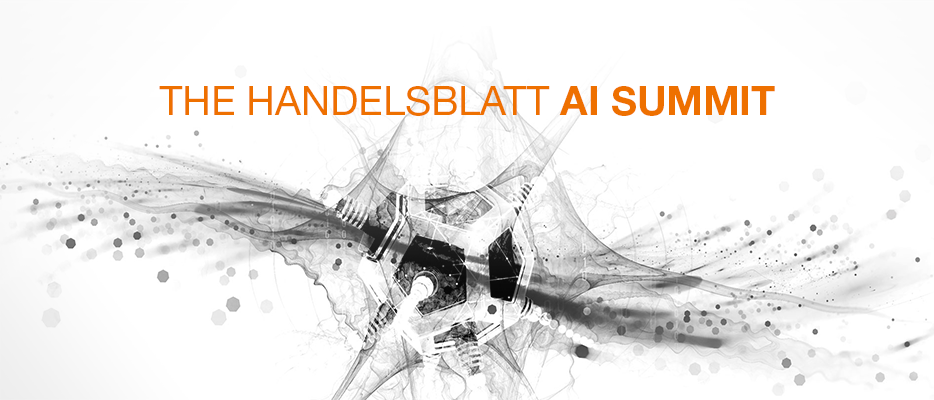AI is the megatrend that will shape the future
Eva-Maria Hufschmitt
April 04, 2019

This year’s Handelsblatt AI Summit in Munich stands out from many others for attracting most of the industry’s leading AI scientists and professors from prestigious Max Planck and Alan Touring Institutes. Strategic players from large multinational companies such as IBM, Bosch, Siemens and Alibaba also participated, each presenting a different perspective on how AI will overhaul the way we live and change the way we do business. Yet, despite the diversity of perspective, experts agree on one thing: Artificial intelligence promises big changes and we are just at the starting point.
The growing concerns about AI advances is front and centre at the AI Summit. Many industry experts at the conference touched on the fast pace of adoption of AI capabilities across many industries and what this could mean for humans going forward. Questions raised by curious participants include: Is this the beginning of a race between machines and humans? What are the implications of AI advances for the future of human workers?
The anxieties about artificial intelligence replacing humans and taking away their jobs is not new and only evoked traditional assurances from experts. While many agreed that AI will surely displace some jobs and have a huge impact on the employment level, the consensus of opinions is that AI will trigger the emergence of many other new occupations that people cannot currently imagine. According to these experts, the new shift engendered in the workplace by AI will lead to the creation of new professions such as intelligent systems and robotics engineers, data mining and knowledge extraction specialists, data scientists, semantic web & ontology engineers and many others.
The challenge for companies is devising ways to search for new talents skilled in implementing new intelligent technologies in companies. At present, almost all the big players say they currently experience dearth of these and other talents in the market - Bosch alone said it needs to fill up to 3000 open vacancies in the AI area by 2020. As Kevin Kelly said, “the business plans of the next 10,000 startups are easy to forecast: Take X and add AI.” So the world will witness a proliferation of AI startups vis-a-vis shortage of AI specialists.
Bringing out the human in robots
According to experts from IBM, AI is the new mega trend, which will significantly change the way we work and live. With intelligent agents boosting productivity and competitiveness, companies currently using AI have strong advantage when it comes to their business. This has been exemplified in IBM’s Deep Blue computer defeating the world champion in chess in 1997 and Watson defeating two champions in the US most popular quiz show Jeopardy in 2011.
Experts from Bosch also emphasized the need for humanism in relation to technology design today. Robert Bosch, founder of the company, once said that technology is "invented for life. All the advances in the development of technology are to the fullest extent in the service to humanity. This technique is designed to give to the whole of humanity a maximum of life and wellbeing.” Executives from Bosch continue to believe that AI is created for the same purpose: to improve human life. A good example is the self-driving cars, where AI helps to avoid accidents, create more free time for people, decrease energy consumption, and improve traffic flows.
Making AI a trusted partner
To provide indispensable assistance to humans, AI must be reliable, trusted and well implemented. However, this is still an underlying challenge. According to Peter Breuer, Senior Partner at McKinsey & Company, only 8 % of the companies that started analytics and AI initiatives actually are able to scale them across the whole organisation. 42% of companies say that they have a lack of AI talent within the organisation and 43% of companies state that a lack of strategy is preventing them from fulfiling their AI initiatives successfully.
This again shows that AI initiatives need the right people to succeed. As competition for AI talents heats up among major corporations like Google, Microsoft or Alibaba, Germany and Europe must do more so as not to lose out in this competition, said Prof. Dietmar Harhoff, Director of the Max Planck Institute for Innovation. Creating attractive conditions are essential for young international researchers as well as more opportunities to transfer their findings from theory into practice. Only then will AI stop from being a threat, but a big chance for our future!
Subscribe for blog updates
- 3 AI Trends for 2025
- ABBYY Included in the Top 100 Software Companies of 2024 by The Software Report
- AI Synergy: ABBYY Meets IBM watsonx.ai

